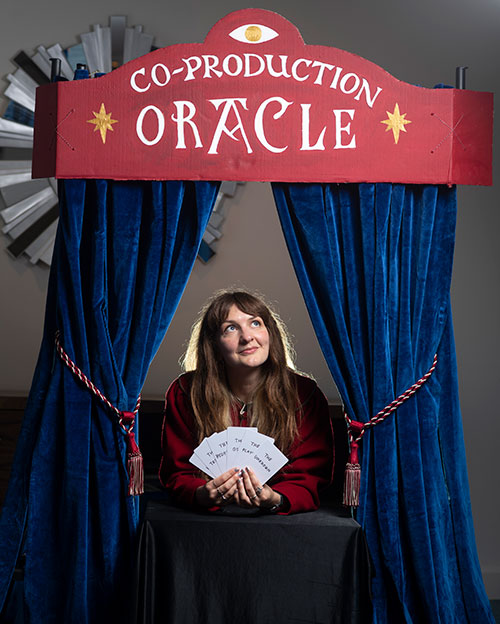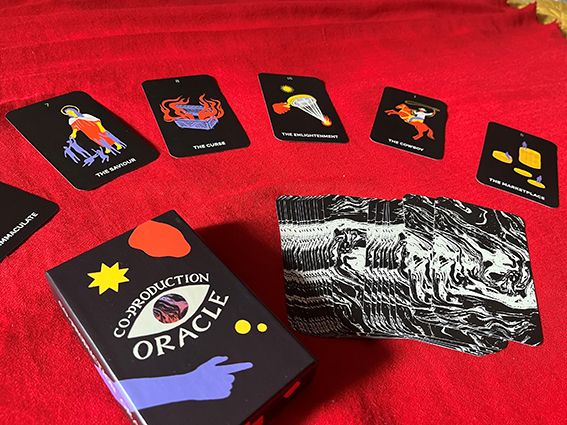Co-production
Our research is solutions focused and we are committed to working with a wide range of partners. We believe that the more we create spaces for dialogue with diverse publics, the better we will be able to define questions and design ways of bringing about change. From plastic reuse networks in the South West to regenerative ecology projects in Kenya we are working with local community groups and building networks to share and scale these up to different levels.
Edit for Climate Change! The GSI-Wikimedia Partnership
With 324 million annual pageviews across over 25,000 climate articles, Wikipedia is one of the biggest sources of information on climate change in the world and relies on volunteer editors to keep articles up to date.
GSI has partnered with Wikimedia UK to update climate research on Wikipedia, makig research accessible, filling knowledge gaps and combating climate misinformation in the process.
How do I get involved?
1. Join an editathon
Learn how to edit climate articles on Wikipedia at one of the monthly editathons. Open to all, no prior Wikipedia experience required! Find out more about the next editathon on the Events page.
2. Review a Wikipedia article
Are you a researcher with knowledge on a climate change topic? You can help by reviewing a Wikipedia article to identify any missing, out of date, or erroneous information and suggest improvements. Email t.baleta@exeter.ac.uk if you’d like to review an article.
This is a great opportunity to share your research, work on a literature review, practice writing for public audiences, and network with others in the climate space while making a positive impact.
The project is running for 24 months from October 2022 to September 2024.
Find out more here or contact Tatjana Baleta with any questions: t.baleta@exeter.ac.uk.
Tatjana Baleta is the Wikimedia Visiting Fellow for Climate at the Global Systems Institute where she works with the University of Exeter and Wikimedia’s climate community to facilitate the improvement of open source climate knowledge.

GSI Creative Residency 2022: Exploring engagement and co-production
Hannah Mumby was appointed GSI Creative Fellow for a residency in 2022 . She is an Exeter based illustrator with experience collaborating with charities, community interest companies, community groups and universities, to help them find ways to visually represent complex ideas and reveal new perspectives on the stories they are telling through their work and research. Over the summer of 2022 Hannah helped the GSI explore how to bring together expertise in tackling the climate crisis, biodiversity loss and other global challenges in horizontal ways with citizens, policy makers, business, and communities globally. The shared goal was to jointly deliver a creative toolkit and effective approaches to foster co-production.
"I am interested in stretching the definition of "illustration", to understand how this type of creative practice might facilitate meaning-making and reflection, within communities and collaborative projects. This residency is a unique opportunity for me to creatively engage with a community that contains a huge diversity of knowledge."
Hannah Mumby, GSI Creative Fellow

The Co-production Oracle
The focus of Hannah's residency with the GSI was to speak to the community and produce a toolkit that could help people understand and foster a culture of co-production. The tool is the Co-production Oracle, a deck of 30 cards which can be used by groups, pairs or individuals to create a space to think and reflect without needed a resolution, a technology to disrupt your ideas.
It can be used to draw attention to things we might be doing/repeating without realising, help to see our motivations more clearly and be used as an ice breaker in complex scenarios.
The beautifully designed cards were launched at a workshop in November 2022. Hannah's Co-production Oracle presentation explains how they came about and how you can use them. Read more about how Hannah created the Co-production Oracle on her blog.
A Digital version of the toolkit was released in 2024. Check it out here along with a recording of the launch workshop.

Artistic collaboration
Artistic interpretation is one of the best ways to facilitate communication on a global scale. Our researchers are keen to collaborate with artists to find news ways of communicating and reaching diverse audiences. As part of her work with The Global Systems Institute (GSI) Tania Kovats worked with researchers for the launch of the institute. She delivered a workshop exploring connections to global systems and a presentation looking at how everyone uses drawing. She also worked with researchers to develop Drawing Change GSI, an Instagram gallery of visual thinking.
She says that ‘Drawing is a specific and unique form of expression that renders thought visible and external. Drawing Change celebrates the democratic nature of drawing that can make links through the thoughts and visualisations of scientists, engineers, environmentalists and artists. Drawing belongs to everyone.’
The gallery can be viewed here https://www.instagram.com/drawingchangegsi/
Our body is a planet
Our Body is a Planet is an art/science collaboration between Léonie Hampton of Still/Moving and scientists at the MRC Centre for Medical Mycology at the University of Exeter. This short film challenges the way we think of ourselves as individual genetically prescribed entities, independent from our surroundings. Without fungi and bacteria our bodies and biosphere would not exist; we are in partnership with the microbial world. Our bodies are made up of more microbial cells that our own ‘human’ cells. This symbiotic life sustaining alliance is under threat, partly as a result of the colossal scale of the destructive practices wrought by humans on the planet during the age of the anthropocene. Read more



